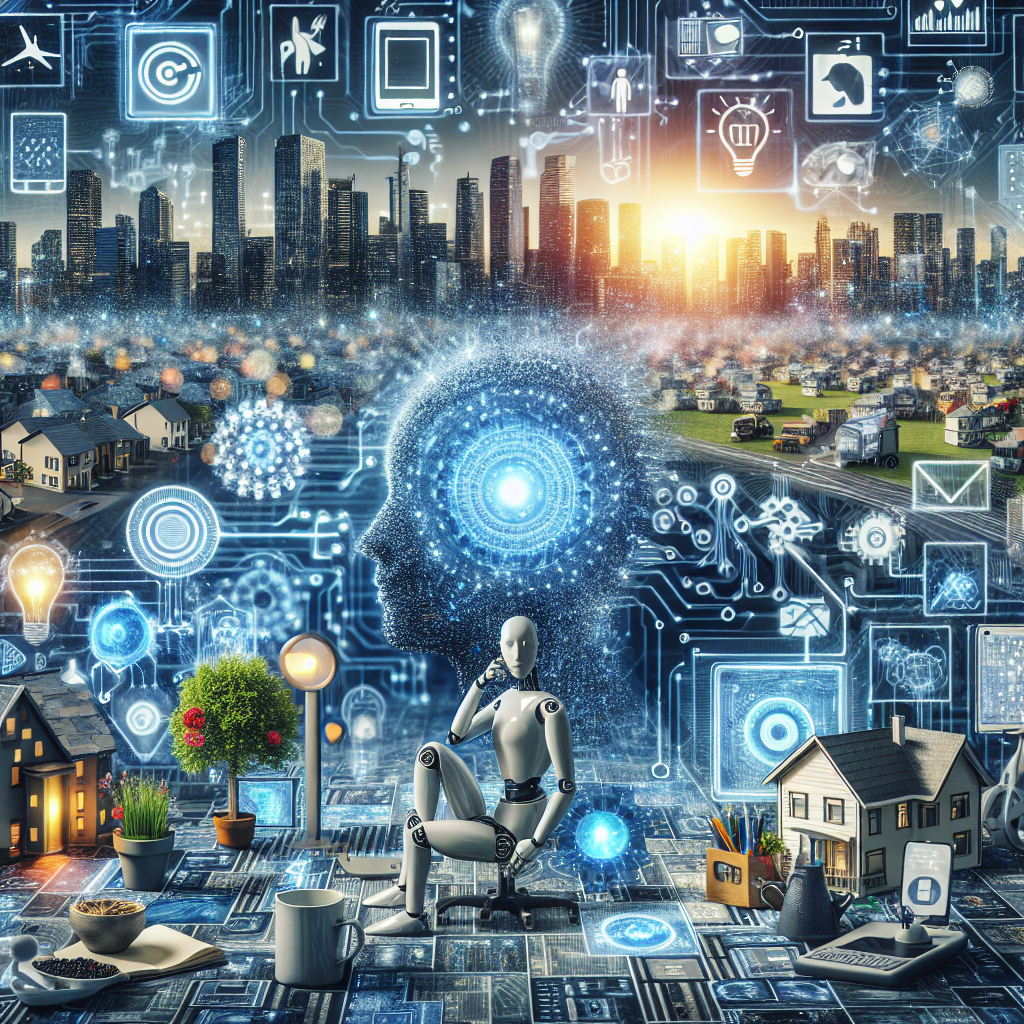Artificial General Intelligence (AGI) is a concept that has long been a topic of discussion and speculation in the field of artificial intelligence. Unlike narrow AI, which is designed to perform a specific task or set of tasks, AGI is meant to have the ability to understand, learn, and apply knowledge across a wide range of tasks and domains. The integration of AGI into everyday life presents both challenges and opportunities that must be carefully considered.
Challenges of Integrating AGI into Everyday Life
One of the major challenges of integrating AGI into everyday life is the potential impact on the workforce. As AGI systems become more advanced and capable of performing a wide range of tasks, there is a risk that they could replace human workers in many industries. This could lead to widespread job displacement and economic disruption, as well as social and ethical concerns about the role of humans in a world dominated by AI.
Another challenge is the potential for AGI systems to exhibit bias or discrimination in their decision-making processes. Because AGI systems are designed to learn from data, they could inadvertently incorporate biases present in the data they are trained on. This could lead to unfair outcomes in areas such as hiring, lending, and criminal justice, and exacerbate existing disparities in society.
Additionally, there are concerns about the security and privacy implications of integrating AGI into everyday life. AGI systems are highly complex and sophisticated, making them vulnerable to cyberattacks and other forms of malicious manipulation. This could pose a significant threat to individuals, businesses, and governments, and raise questions about how to ensure the safety and integrity of AGI systems.
Opportunities of Integrating AGI into Everyday Life
Despite the challenges, there are also many opportunities associated with integrating AGI into everyday life. One of the most promising applications of AGI is in the field of healthcare, where AI systems could revolutionize the diagnosis and treatment of diseases, leading to improved outcomes and reduced costs. AGI could also be used to enhance education, personal productivity, and entertainment, providing new ways for individuals to learn, work, and relax.
AGI systems could also help to address some of the most pressing global challenges facing humanity, such as climate change, poverty, and healthcare disparities. By leveraging the power of AGI to analyze vast amounts of data and generate insights, researchers and policymakers could develop more effective strategies for addressing these complex problems and improving the quality of life for people around the world.
Furthermore, the integration of AGI into everyday life could lead to new opportunities for economic growth and innovation. As AGI systems become more advanced and capable, they could enable the development of new products and services that were previously unimaginable, creating new markets and driving technological progress in a wide range of industries.
FAQs
Q: What is the difference between AGI and narrow AI?
A: AGI is designed to have the ability to understand, learn, and apply knowledge across a wide range of tasks and domains, whereas narrow AI is designed to perform a specific task or set of tasks.
Q: How will AGI impact the workforce?
A: AGI systems have the potential to replace human workers in many industries, leading to widespread job displacement and economic disruption.
Q: What are the security and privacy implications of integrating AGI into everyday life?
A: AGI systems are vulnerable to cyberattacks and other forms of malicious manipulation, raising concerns about the safety and integrity of these systems.
Q: What are some potential applications of AGI in everyday life?
A: AGI could revolutionize healthcare, education, personal productivity, and entertainment, as well as help address global challenges such as climate change and poverty.
In conclusion, the integration of AGI into everyday life presents both challenges and opportunities that must be carefully considered. While there are concerns about job displacement, bias, security, and privacy, there are also promising opportunities for improving healthcare, education, and innovation, as well as addressing global challenges. By addressing these challenges and leveraging the opportunities, we can ensure that AGI has a positive impact on society and enhances the quality of life for people around the world.

